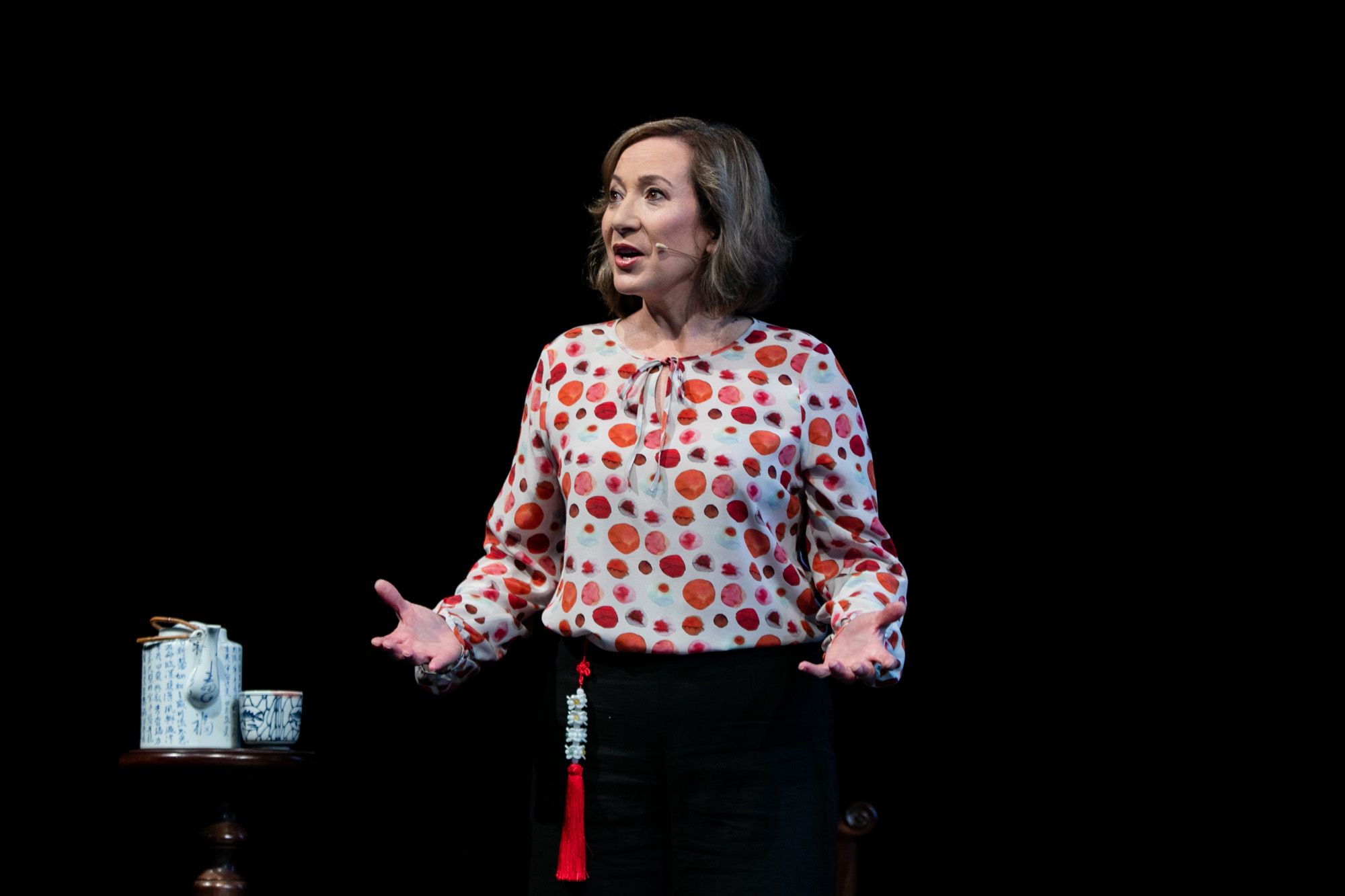The delightful efforts of journo Jane Hutcheon to tell of the complexities of her Eurasian family in Shanghai, HK and Australia may seem to have nothing to do with Aboriginal art. But the mere fact that her show opened in a Sydney Festival fraught with closures and boycotts says something about the persistent importance of art as an essential way of explaining the world to us.
How come this woman, originating from the formerly discriminated against setting of a mixed race family, can cheerily discuss the issues involved and reveal the childhood jokes about whether she was a banana or an egg – ie, was she yellow on the inside or the outside? – when we in Australia have banned the word half-caste from our vocabulary. Well, it’s still happily used in the NT by the people it refers to. But it’s cancelled in the woke worlds of Sydney and Melbourne.
And then there’s the issue of sponsorship – so vital in the arts these days when Australian governments don’t rate culture as a matter of sufficient importance – at least when it comes to our voting – to fund it amply enough to avoid the need to turn to the Israeli Embassy to put on a local show employing a famous Israeli choreographer. Would I have attended if ‘Lost in Shanghai’ had turned to the Chinese Embassy to assist in the telling of this symbiotic story of Shanghai’s relations with Hong Kong, of colonial assaults on both, of the tragic handover of Hong Kong to the mainland, and of the informed role that Hutcheon played as the ABC’s correspondent in Beijing?
Well, of course I would. Having lived in HK myself, travelled widely in China and once worked with Hutcheon, I wanted her younger take on a world that I both care about, and currently despair for.
But how does a TV journalist convert into an attention-holding stage performer? In case you’ve forgotten Hutcheon’s ABC Foreign Correspondent days in China, the Middle East and Europe, you may well know her from the more recent interview program, ‘One + One’. She did 500 of them. Well, you could ask the same question of a photographer, William Yang. He turned his imagery into insightful stage performances that toured the world and upturned our very notion of ‘the slide show’. And he’s now directed Hutcheon in this show.
But who decided, I wonder, to slow her delivery to what could be described as a careful tread, a fair bit slower than correspondent’s pace? Despite this, Hutcheon’s personality came across nicely, accompanied by a blend of the illustrative and the necessary distraction from composer/performer Terumi Narushima on a range of percussive and blown instruments. The music – especially the pungency of Narushima’s bowed psaltery – was almost as important as the tremendous mix of images that Hutcheon had accumulated from her family’s and China’s past.
From tea-tasting in Shanghai – though not, I think for the British Empire, as Hutcheon suggested – to the Japanese invasion, the Communist take-over, her English father Robin’s glorious career as Editor of the South China Morning Post in HK, to her own journalism course in Bathurst – so far from the urban density of HK – we mainly see events through her mother Beatrice’s eyes. A pretty doll on the unpredictable waves of history. Did she even know, in HK with relatives, that her father had committed suicide as the economy tanked in Shanghai? And with what panache did she become a journalist herself? Later, we see Hutcheon’s own career through to the present – and that doesn’t really feel as interesting.
But, given the number of families who ended up in Australia via Shanghai and HK, it’s definitely worth a look – for them and for the people who’d like to understand them. But ‘Lost in Shanghai’ is only on at the Seymour Centre until Sunday.


